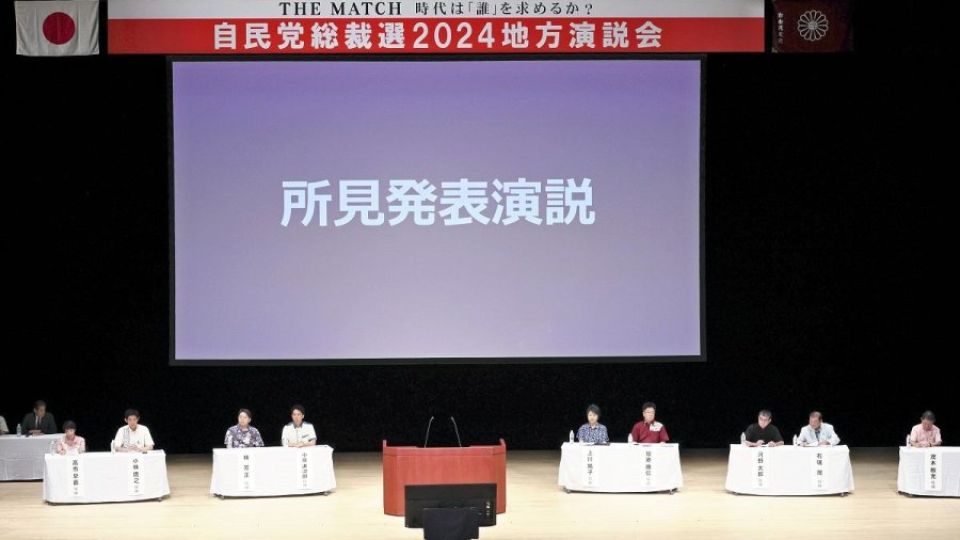September 19, 2024
NAHA – The nine candidates for the Liberal Democratic Party’s presidential election discussed their policies on foreign and national security issues at a debate in Naha on Tuesday.
Former LDP Secretary General Shigeru Ishiba, 67, expressed his long-held views, saying, “We should start reviewing the [Japan-U.S.] Status of Forces Agreement, and [the U.S.] bases [in Japan] should be jointly managed with the Self-Defense Forces.”
Referring to the 2004 crash of a U.S. military helicopter on the grounds of the Okinawa International University located next to the U.S. Marine Corps Futenma Air Station in Ginowan, Okinawa Prefecture, Ishiba stressed the need to review the agreement.
There have been voices within the government and LDP expressing concern about possible sudden changes in foreign and security policies where consistency is needed.
While there are strong calls in Okinawa Prefecture for a fundamental revision of the agreement, the central government has so far dealt with the issue by concluding supplementary agreements and improving its implementation.
In previous debates among LDP presidential candidates, Ishiba and economic security minister Sanae Takaichi, 63, have both stood out for their distinctive views on diplomatic and security issues.
They mentioned reviewing Japan’s nuclear policy, with Ishiba calling for a discussion on seeking a nuclear sharing arrangement, under which nuclear weapons would be jointly operated with the United States.
Takaichi is seeking to begin discussions on a review of Japan’s three non-nuclear principles.
She has also made clear her tough stance on China, saying that she would visit Yasukuni Shrine as prime minister and pledging to remove a buoy that China set up within Japan’s exclusive economic zone.
A former Cabinet minister expressed concern over their stances, saying, “These will significantly change the government’s previous policies and could cause confusion.”
Several observers pointed out that some candidates showed only a superficial understanding of issues.
At a public debate on Saturday, Ishiba spoke about what would happen if former U.S. President Donald Trump won the U.S. presidential election in November and asked Japan to bear additional costs of U.S. troops stationed in Japan.
“No matter who the president is, the validity of our arguments should be properly recognized if we can keep the figures in check and discuss the issue,” Ishiba said.
Former Environment Minister Shinjiro Koizumi, 43, remarked that he and North Korean leader Kim Jong Un are from the same generation and said he wanted to open new developments through high-level diplomacy.
Referring to their comments, a senior Foreign Ministry official said: “There are many leaders who have seen their relations with Mr. Trump deteriorate after presenting a solid argument. In the case of the North Korean issue, it is essential to have a concrete strategy that leads to diplomacy at the highest level.”

